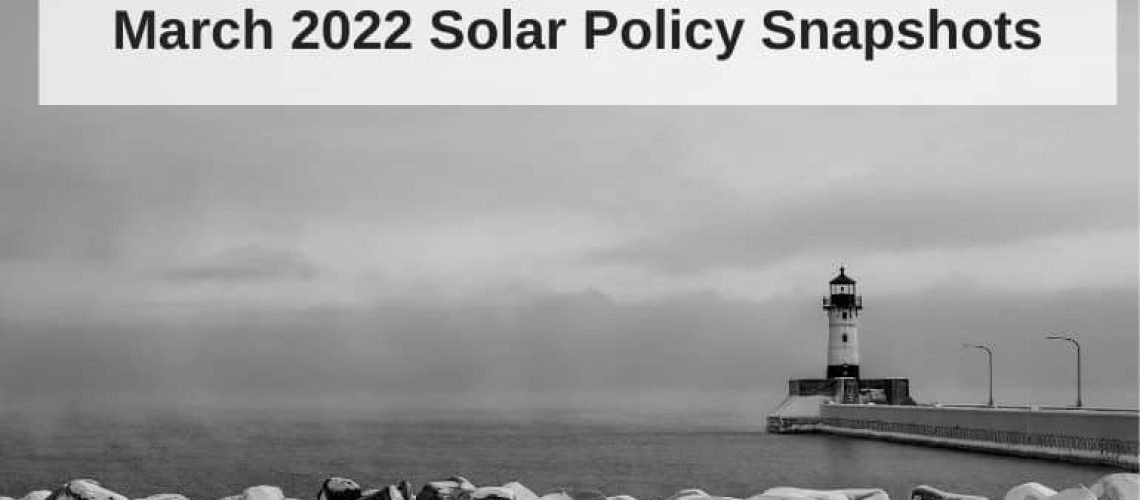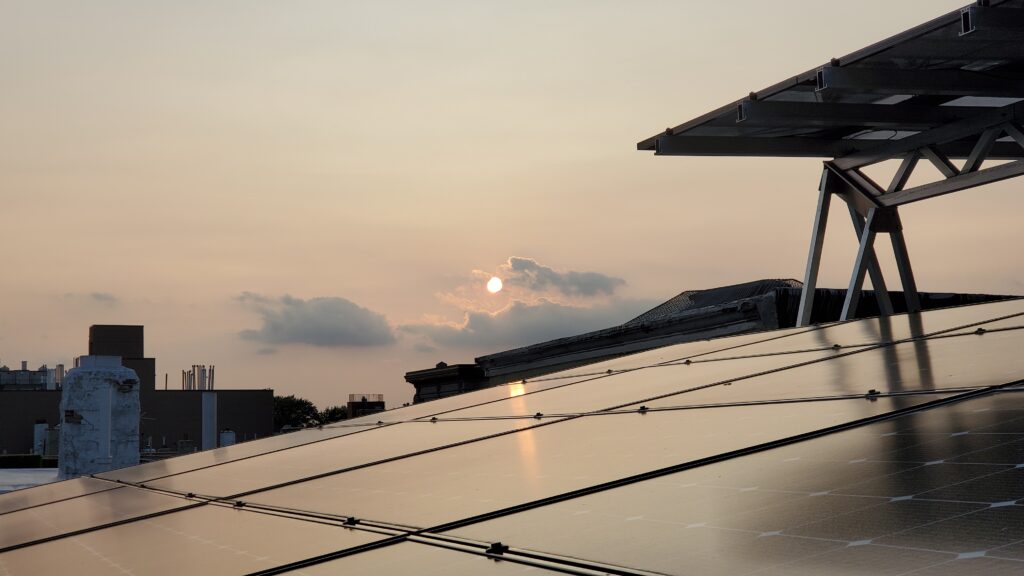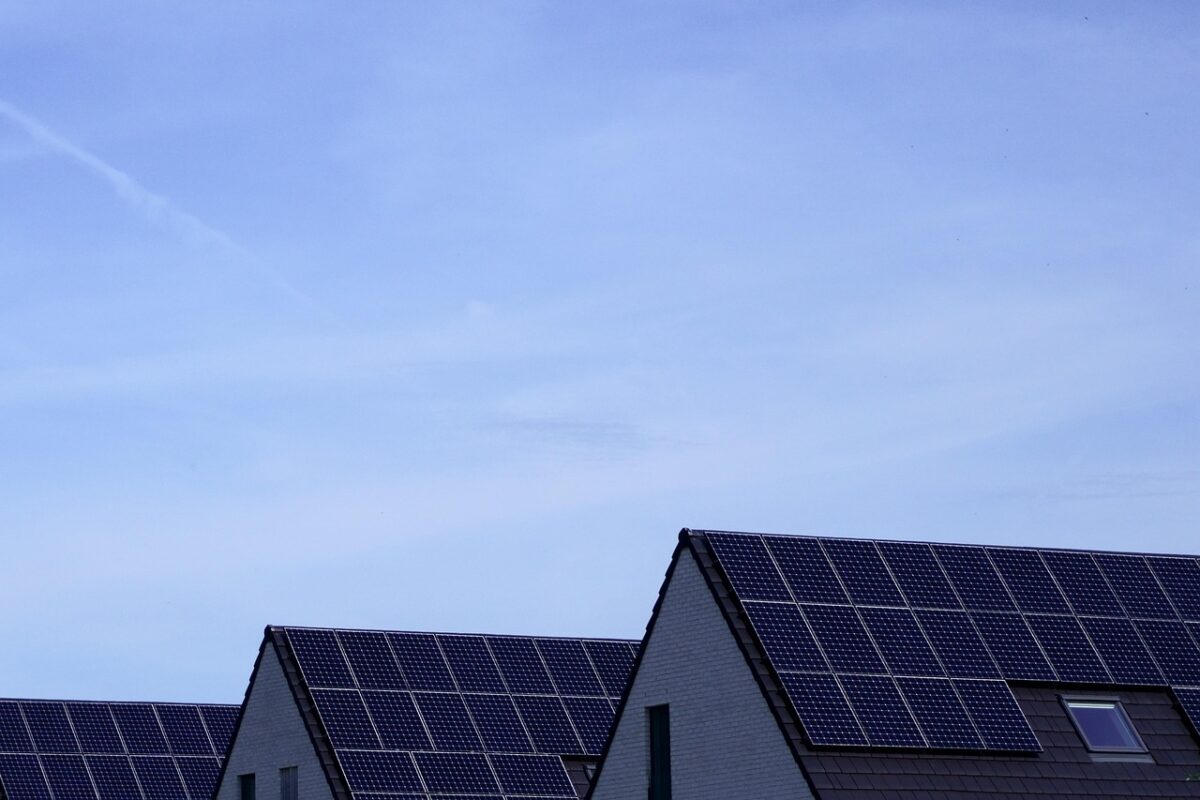
A Wisconsin battle over solar + EV chargers could foreshadow a new era of utility efforts to keep control of powering electric vehicles.
Indiana bill allows counties to adopt “solar-ready” siting regulations
Indianapolis, Indiana
The Indiana General Assembly has passed SB 411, a bill that would let local communities decide whether to ease utility-scale solar siting regulations. Advocates say the legislation is a compromise that balances reasonable siting standards with local control.
Advocates say Virginia’s proposed minimum bill charge could kill community solar
Richmond, Virginia
Solar advocates are asking Virginia regulators to lower the proposed minimum bill price that participants in the state’s new shared solar program would be required to pay for grid maintenance. The solar industry says the $55 minimum bill price would deter many residents from joining the program.
Wisconsin legislation would impose restrictions on public solar-powered EV chargers
Madison, Wisconsin
A bill in Wisconsin would require all electricity sold through electric vehicle chargers to use power provided by the local utility, prohibiting businesses from energizing those chargers with on-site solar + storage systems. Renewable advocates submitted testimony opposing this aspect of the bill.
CPUC delays California NEM 3.0 decision
Sacramento, California
The California Public Utilities Commission (CPUC) delayed its decision on net-metering changes to give commissioners more time to consider revisions and analyze the record. The solar industry is anticipating a decision at the March 17, 2022, CPUC meeting, but the timeline is still unclear.
California fast-tracks RPS goals
Sacramento, California
The CPUC approved new plans to adopt a 35 million metric ton (MMT) 2032 electric sector greenhouse gas planning target, which is less than the previous goal of 46 MMT. New research from the California Energy Commission also found the state surpassed its 2020 RPS goal by 1.5%.
New England committee votes to delay elimination of MOPR
New England
Governing entities in New England voted to delay the removal of the Minimum Offer Price Rule (MOPR) until 2025, to the disdain of renewable energy advocates. The MOPR imposes a minimum bid price on certain electric generation resources in PJM’s capacity auctions and does not incentivize state development of renewable energy.
Minnesota requires solar be included in future Xcel Energy resource plans
Saint Paul, Minnesota
The Minnesota Public Utilities Commission voted unanimously to require utility Xcel Energy to add 2.5 GW of new solar projects by 2030 and include distributed energy like solar in the company’s future resource plans. Additionally, no new gas plants were approved in this proceeding.
Clean energy trade groups ask FERC to reform interconnection process
Washington, D.C.
SEIA and two other clean energy associations filed comments with FERC emphasizing the need for near-term interconnection improvements to allow additions of new renewable energy generation. SEIA called interconnection backlogs one of the biggest impediments to decarbonizing the electric grid.
NYSERDA seeks federal grant to train displaced fossil fuel workers for clean energy jobs
Albany, New York
The State of New York is seeking a $25 million federal grant to train residents for new clean energy job opportunities. In the proposal, community colleges would work together to build classes and programs to train 2,000 new workers and reskill 1,500 existing workers.
New report outlines best policy practices for siting community solar projects
Washington, D.C.
SEIA has released a new report to help policymakers and developers strategically site community solar projects. The paper emphasizes the importance of designing these projects for maximum ecosystem and agricultural benefits.
Solar advocates push for passage of Massachusetts grid-planning bill
Boston, Massachusetts
Clean energy organizations called on Massachusetts officials to pass a new bill that would require utilities to proactively upgrade the grid and increase customer access to renewable energy. The bill will soon be taken up by the House of Representatives.






